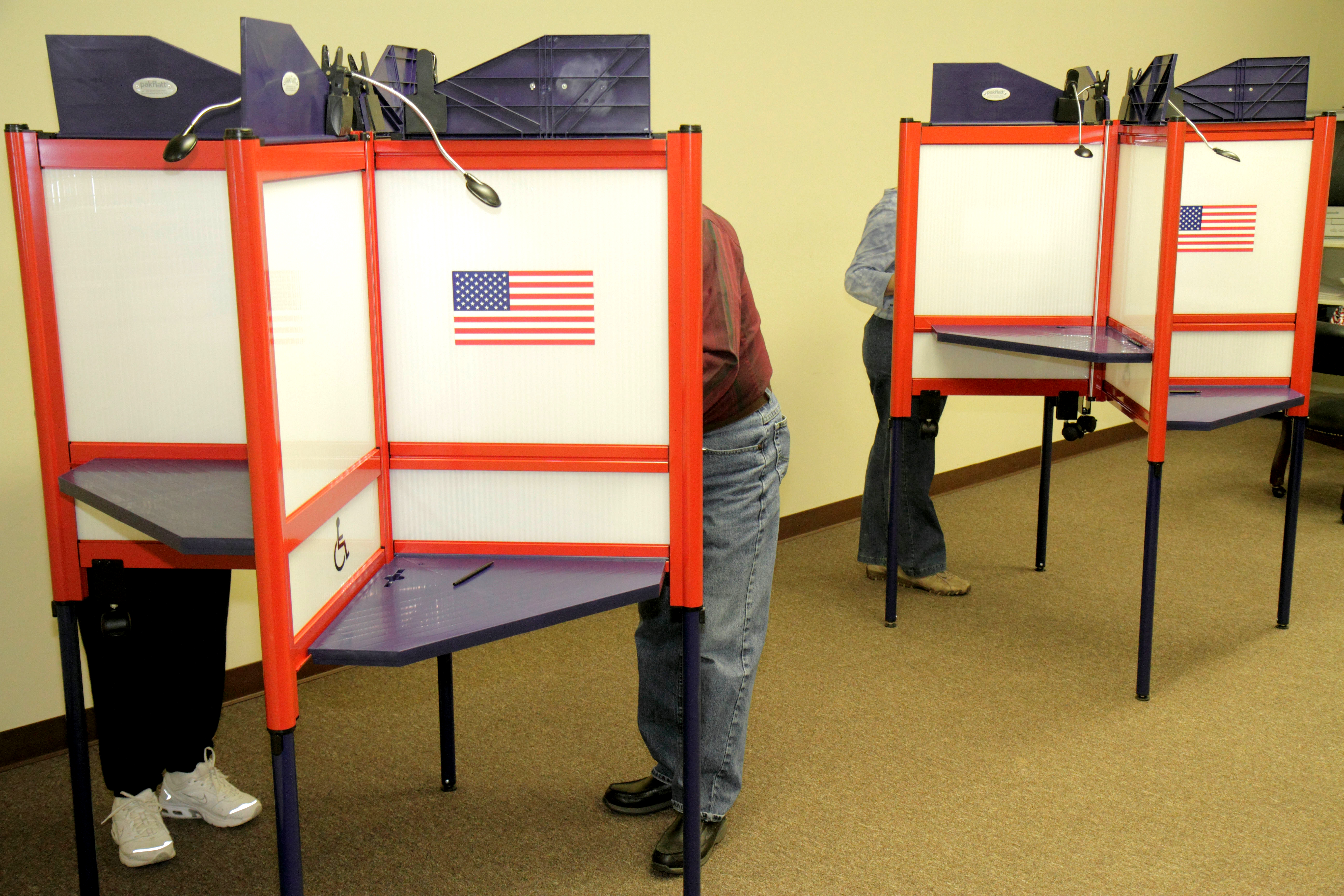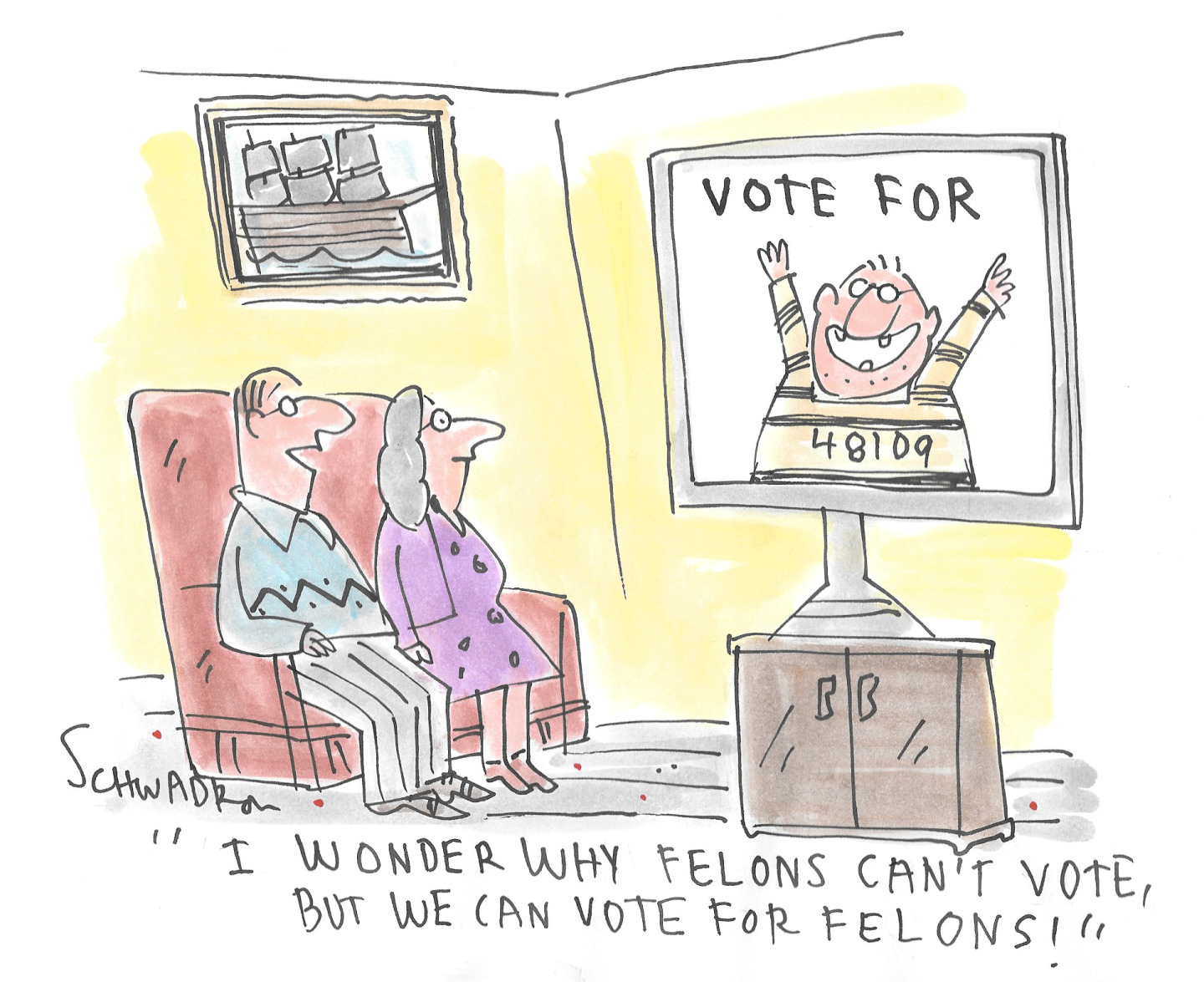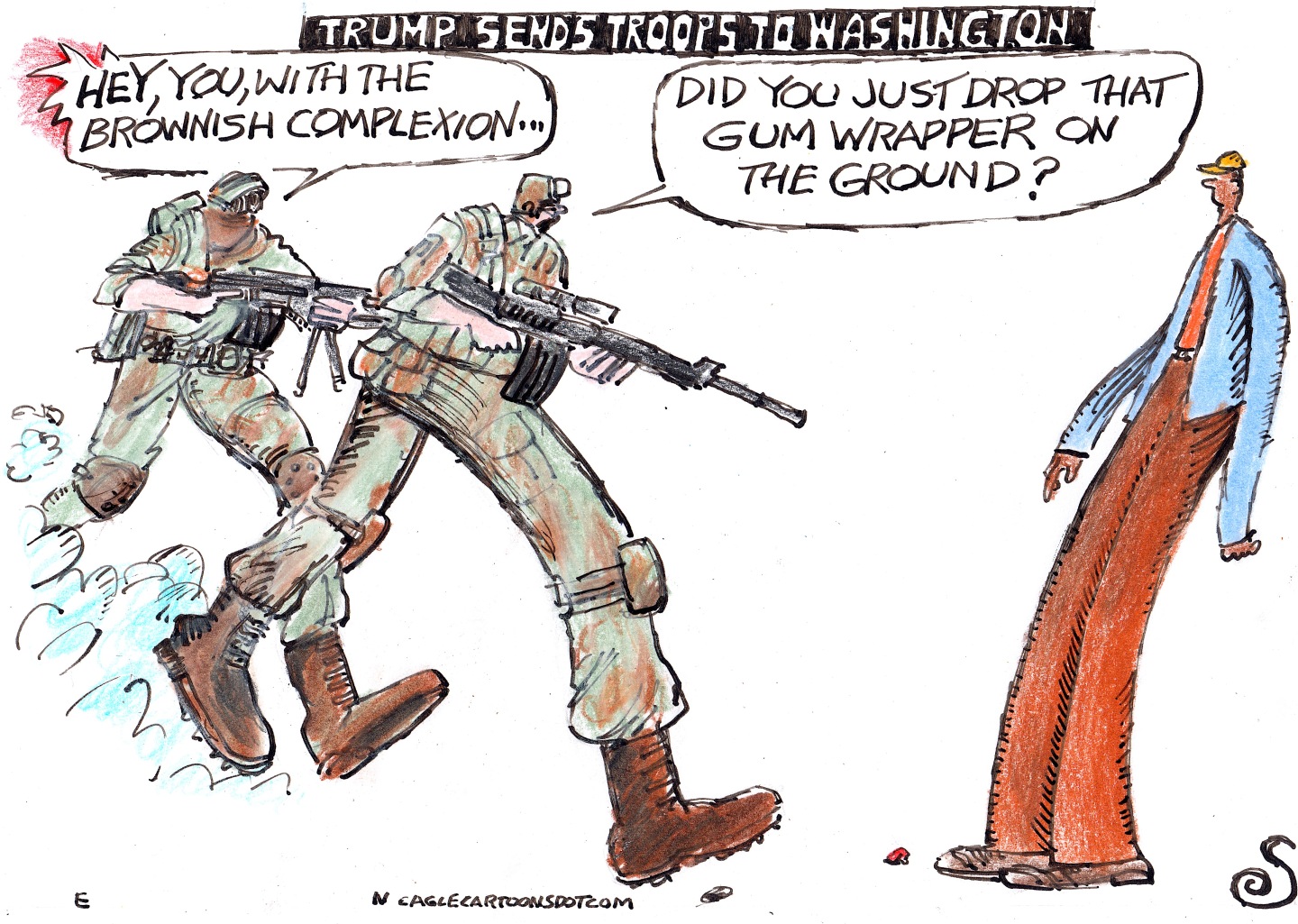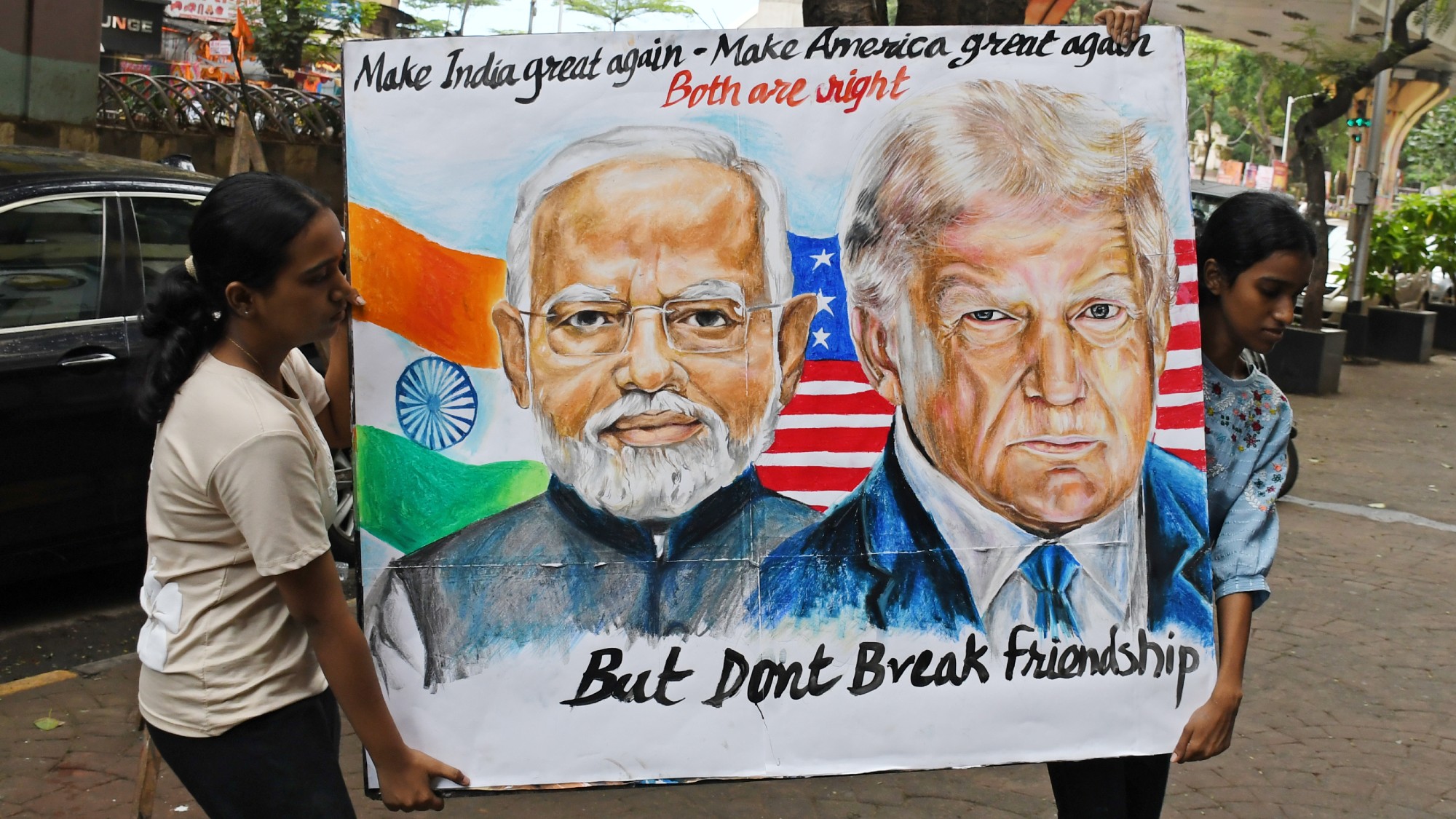Can blockchain fix America's voting system?
Americans no longer trust the ballot box. Can blockchain technology help?

Trust in the American voting system is at an all-time low. One recent poll found that just 24 percent of voters feel "very confident" that their votes will be counted in this year's midterm elections. Fifty-eight percent of those surveyed said it was likely that a foreign government would try to interfere with the election process.
This is a huge problem. A recent report from the Knight Commission on Trust, Media, and Democracy concluded that when citizens don't trust their government or the integrity of the voting system, "democracy cannot function."
No doubt nearly two years of national talk about election meddling and vote hacking has only exacerbated this problem. But Americans' fears here aren't unfounded: The Department of Homeland Security found that Russian hackers targeted the voting systems of 21 states in 2016. Just last week, Special Counsel Robert Mueller charged 12 Russians with hacking Democratic officials. The Brookings Institution's Lawfare blog warns that if hackers were to tamper with even 20 percent of the country's votes, the result could be "electoral chaos."
Subscribe to The Week
Escape your echo chamber. Get the facts behind the news, plus analysis from multiple perspectives.

Sign up for The Week's Free Newsletters
From our morning news briefing to a weekly Good News Newsletter, get the best of The Week delivered directly to your inbox.
From our morning news briefing to a weekly Good News Newsletter, get the best of The Week delivered directly to your inbox.
How do we rebuild trust in the American voting system? We could start by making the technology people use to cast their ballots more reliable, and one way to do this is through blockchain, cybersecurity's trendiest new technology. Hailed as the solution for everything from manufacturing to health care, several well-funded companies believe it can also repair our antiquated election system.
You probably associated blockchain with cryptocurrency. Indeed, it is the complex mechanism that allows cryptocurrency, like bitcoin, to be sent and tracked. It is a permanent and verifiable digital ledger that records transactions between two parties. The transaction takes place over a network of computers that work together to verify them and prevent them from being altered or reversed.
Blockchain's numerous security features make it incredibly secure. The system works by recording data in virtually tamper-proof blocks, which makes hacking extremely difficult. It also produces ledgers, or records, of each transaction, which are equally hard to hack. Tamper proof? Super secure? Sounds like a laundry list of all the things we wish the voting system could be.
If blockchain were applied to an election, ballots would be embedded in digital code and stored in transparent shared databases protected from deletion, tampering, or revision. Each unique ID in the chain would represent one voter. To tamper with votes, a hacker would have to change the code of every block up and down the chain, and right now, that's close to impossible.
A free daily email with the biggest news stories of the day – and the best features from TheWeek.com
West Virginia has volunteered to be the nation's blockchain guinea pig. For its May 8 primary, the state selected some overseas military voters to participate in a blockchain voting trial. (These voters in particular had expressed concerns about their ballots being received on time and counted.) The primary trial was run by Voatz, a Boston-based startup that enables secure voting via mobile phone app using biometrics, ID verification, and blockchain technology to try to keep votes secure.
Two days after the election, the West Virginia secretary of state's office said it believed blockchain provided a "heightened level of security." Secretary of State Mac Warner hasn't yet decided whether or not to expand the trial.
Is an app really the most viable option here? What about the less tech-savvy among us? VoteWatcher is another blockchain voting platform. But unlike Voatz, it doesn't use an app; instead, voters still have to go to the polls. Their paper ballots are then scanned into a blockchain system.
"Citizens need to be able to trust that elections are fair," says Nick Spanos, the developer of VoteWatcher. He says not everyone is a computer whiz who will be reassured by a mobile app on a tablet or phone. He believes VoteWatcher's mix of high and low tech makes the process easier to understand and trust, which could encourage increased voter participation. "There won't be a one-size-fits-all solution," he says. "Different states and localities can come to different conclusions over time that best reflects the will of their citizens."
Blockchain certainly has its fair share of skeptics. Perhaps the biggest skeptic of all, though, is the average voter. One survey found that 75 percent of Americans trust the integrity of paper voting systems, as opposed to 68 percent who trust electronic voting options.
In the end, maybe none of these schemes will help win back voters' trust. "There are much more complex cultural problems around elections that need to be answered," says John Collins, a fellow at Harvard's Berkman Klein Center for Internet and Society and a former Senate adviser on blockchain and digital currencies. "There's bribery, there's corruption, there's fake news, and bad actors. It's very easy to say 'just use blockchain.' You can have the most perfect machine, but if you're not going to operate it the way it's intended, there's a problem."
-
 August 17 editorial cartoons
August 17 editorial cartoonsCartoons Sunday’s political cartoons include voting rights of felons, misdirection on the way to the Alaska summit, and more
-
 5 crime-ridden cartoons about National Guard deployment in DC
5 crime-ridden cartoons about National Guard deployment in DCCartoons Artists take on the crime of littering, the real criminals in DC, and more
-
 Trump and Modi: the end of a beautiful friendship?
Trump and Modi: the end of a beautiful friendship?In the Spotlight Harsh US tariffs designed to wrest concessions from Delhi have been condemned as 'a new form of imperialism'
-
 Ghislaine Maxwell: angling for a Trump pardon
Ghislaine Maxwell: angling for a Trump pardonTalking Point Convicted sex trafficker's testimony could shed new light on president's links to Jeffrey Epstein
-
 The last words and final moments of 40 presidents
The last words and final moments of 40 presidentsThe Explainer Some are eloquent quotes worthy of the holders of the highest office in the nation, and others... aren't
-
 The JFK files: the truth at last?
The JFK files: the truth at last?In The Spotlight More than 64,000 previously classified documents relating the 1963 assassination of John F. Kennedy have been released by the Trump administration
-
 'Seriously, not literally': how should the world take Donald Trump?
'Seriously, not literally': how should the world take Donald Trump?Today's big question White House rhetoric and reality look likely to become increasingly blurred
-
 Will Trump's 'madman' strategy pay off?
Will Trump's 'madman' strategy pay off?Today's Big Question Incoming US president likes to seem unpredictable but, this time round, world leaders could be wise to his playbook
-
 Democrats vs. Republicans: which party are the billionaires backing?
Democrats vs. Republicans: which party are the billionaires backing?The Explainer Younger tech titans join 'boys' club throwing money and support' behind President Trump, while older plutocrats quietly rebuke new administration
-
 US election: where things stand with one week to go
US election: where things stand with one week to goThe Explainer Harris' lead in the polls has been narrowing in Trump's favour, but her campaign remains 'cautiously optimistic'
-
 Is Trump okay?
Is Trump okay?Today's Big Question Former president's mental fitness and alleged cognitive decline firmly back in the spotlight after 'bizarre' town hall event